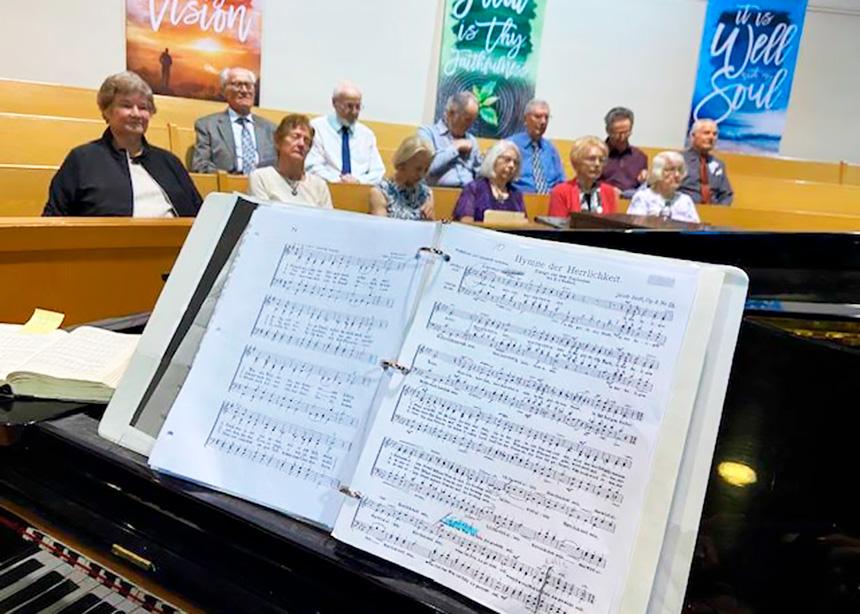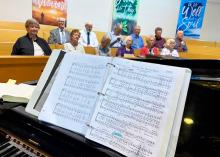On June 4, St. Catharines United Mennonite Church held its last German language service, marking the end of 78 years of providing support for the spiritual life of German speakers in the language of their heart.
Many German-speaking Mennonites had come to Canada from Russia in 1923 and thereafter, escaping famine, revolution and civil war. Some came to Ontario, specifically to Vineland, where a United Mennonite Church was started in 1935. After struggling on the prairies in the 1920s and 1930s, more Russian Mennonites came to Ontario in the 1940s. For economic reasons more families came to the cities, including St. Catharines. Due, in part, to wartime gasoline rations, it was not feasible for Mennonites in St. Catharines to join existing churches in Vineland or elsewhere, so they started their own church.
The first worship service was held on July 4, 1942, in a rented hall is St. Catharines. In 1945, the group moved into their own church building on Carlton Street. The membership grew significantly in the late 1940s with the influx of post-war Russian Mennonite refugees. Another major growth in church membership came in the 1950s with migrations from Paraguay.
The worship services and Sunday School were held in German, a language used in Russia, having been brought by Mennonites from their previous places of origin.
Parallel English and German Sunday school classes were started in 1958, and English was used exclusively in Sunday School staring in 1978. Worship services consisted of German and English elements until 1988 when separate, earlier German services were initiated. This pattern continued, with some variation—including a reduction to German services only twice a month—until this year.
In the ‘40s and ‘50s, German was spoken at home as well as at church. German was the "spiritual language" for many, in that their Bible reading and prayer life were in German. Over the decades English gradually took over in the homes, as it was learned in school and used in the work world. Although the grandparents may not have spoken English in the 1950s, they certainly do today.
As the older German speaking members died, the number of worshippers in the German services declined. Irene Giesbrecht, a speaker in the German service, and a German service committee member said, "It was more difficult to get German speakers for such a small number." And so with low attendance and the challenge of getting German language speakers, the decision was made to conclude this ministry with a service of celebration.
A service with singing, readings and choir participation was a wonderful expression of thanks to God for the 78 years of being able to worship in the heart language of the founders of this church. It was the end of an era.



Comments
I think it was very nostalgic for those present. I wish they make it a yearly remembrance service. That way, the past will not be forgotten so soon. Thanks.
Add new comment
Canadian Mennonite invites comments and encourages constructive discussion about our content. Actual full names (first and last) are required. Comments are moderated and may be edited. They will not appear online until approved and will be posted during business hours. Some comments may be reproduced in print.